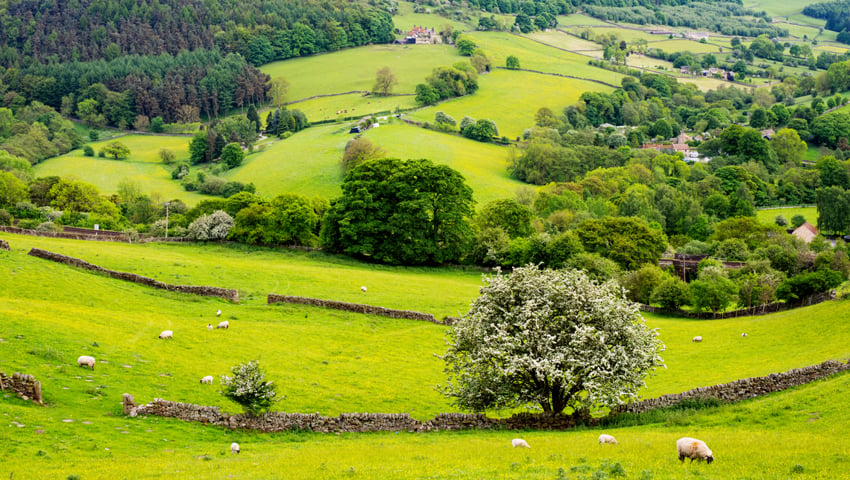A NEW report from the Institute for Public Policy Research (IPPR) says that “the government’s failure to meaningfully address the climate and nature crises and support farmers risks the UK being unable to produce enough of its own food.”
The report says that “climate and nature crises are having a direct impact on farmers and food production in the UK. Livestock are increasingly exposed to heat stress, growing seasons are changing, pests and diseases are living longer in warmer winters, droughts are impacting crop growth and flooding is affecting soil runoff, erosion, and harvesting.”
Lesley Rankin, co-author of the report and researcher at IPPR, said “The climate and nature crisis poses one of the greatest risks to the UK’s domestic food production, and the UK government has consistently failed to treat this threat with the urgency it deserves.
“If we are serious about ensuring food security and leaving our environment in a better state than we found it for generations to come, it is crucial we act immediately and involve farmers and communities every step of the way.
“The evidence is crystal clear: protecting our planet, boosting farmers’ livelihoods and food security go hand-in-hand. Now it’s on the government to act to put us on a path that provides a better life for us all.”
IPPR reports that trade deals struck since Brexit are undercutting British farmers and climate goals while effectively exporting the UK’s carbon and ecological footprint elsewhere in the world. At the same time, the UK’s food system is too wasteful and skewed towards environmentally damaging highly processed food. IPPR also noted that food poverty is an increasing problem in the UK with lower-income households disproportionately affected by food price rises and less able to afford a good diet.
“The use of land in the UK needs to change,” says the report “but responsibility for the transition to climate and nature-friendly farming cannot be left to farmers alone. They are already grappling with a system that does not fairly reward them for their produce.”
The report calls for a long-term vision for the future of land and agriculture, which must reflect the views of those who work in farming as well as consumers. In this vein, its findings are informed by several community panels – convened by IPPR in Somerset, Cumbria and Kent – on how to tackle the climate and nature crises in way that is fair to farmers, farm workers and the public.
The panels called for the government to take a greater leadership role within the food system, including by providing a long-term funding settlement to support the changes needed. They also urged greater promotion of local food, and steps to cut out unnecessary transport, processing and packaging.
The report says a “significant shift” is needed to ensure the UK’s food security, with “robust intervention” by the government, including to support farmers in the transition. It urges a comprehensive industrial strategy for food and farming to ensure the UK’s food security and also meet net zero targets.
The IPPR says that this should involve:
- Providing £2.4 billion a year for the next decade for farm support in England to help farmers deliver better carbon and wildlife outcomes.
- Strengthening trade deals so that food imports are produced to the same standards as domestic produce – including environmental safeguards, animal welfare and food safety standards, and workers’ rights.
- Creating food partnerships in local areas to increase the market for nutritious, nature and climate-friendly food.
